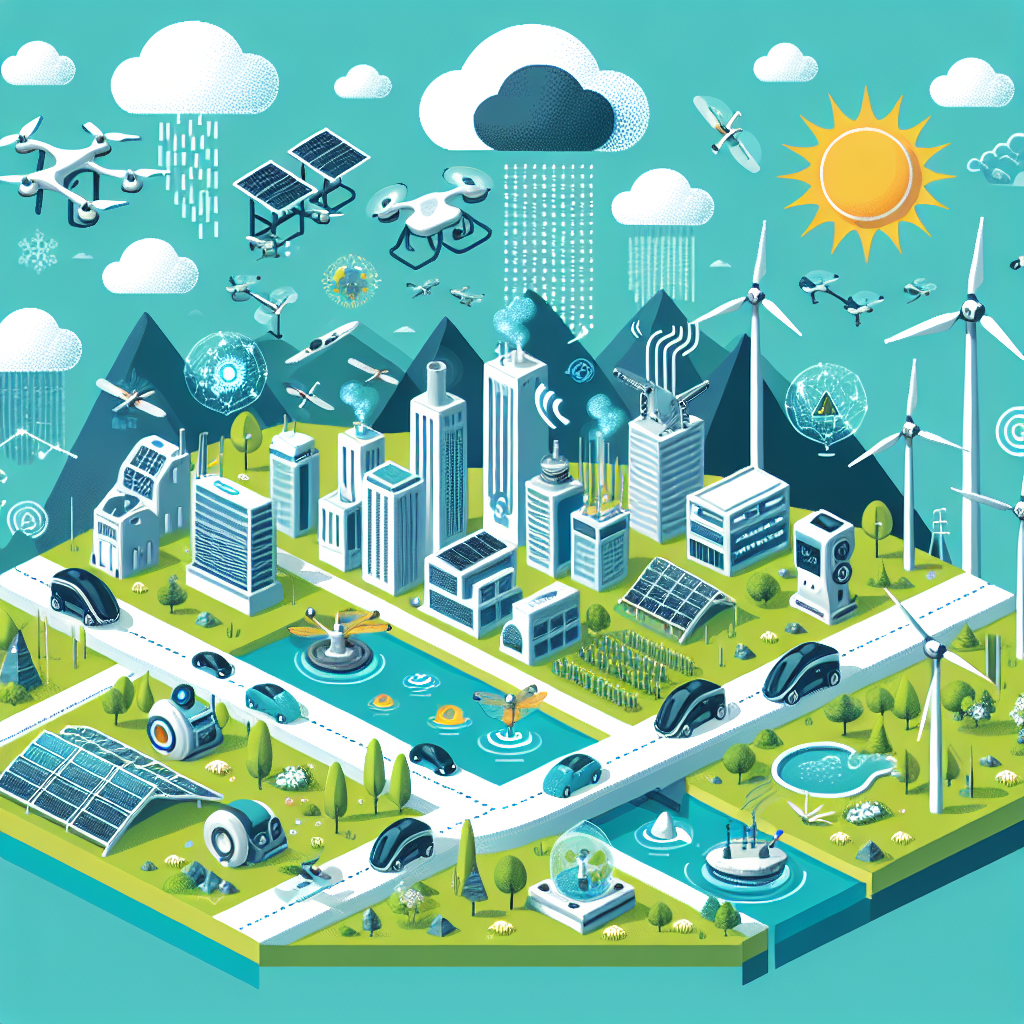Harnessing AI for Climate Adaptation Strategies
Climate change is one of the most pressing issues facing our planet today. With rising global temperatures, melting ice caps, and extreme weather events becoming more frequent, it is clear that action needs to be taken to mitigate the effects of climate change. One way that technology can help in this fight is through the use of artificial intelligence (AI) for climate adaptation strategies.
AI has the potential to revolutionize the way we approach climate change adaptation. By harnessing the power of AI, we can better understand the impacts of climate change, predict future changes, and develop more effective strategies to adapt to a changing climate. In this article, we will explore how AI can be used to help address the challenges of climate change and create a more sustainable future for our planet.
Understanding Climate Change with AI
One of the key benefits of using AI for climate adaptation is its ability to process large amounts of data quickly and accurately. This data can come from a variety of sources, including satellite imagery, weather stations, and climate models. By analyzing this data, AI can help us better understand the complex interactions that drive climate change and identify patterns and trends that may be difficult for humans to detect.
For example, AI can be used to analyze satellite imagery to track changes in the Earth’s surface, such as deforestation or melting ice caps. This information can then be used to predict how these changes will impact the climate and develop strategies to adapt to them. AI can also be used to analyze weather data to predict extreme weather events, such as hurricanes or droughts, and help communities prepare for and respond to these events.
Developing Climate Adaptation Strategies with AI
Once we have a better understanding of the impacts of climate change, AI can help us develop more effective adaptation strategies. By simulating different scenarios and predicting the outcomes of different actions, AI can help us identify the most effective strategies for adapting to a changing climate.
For example, AI can be used to simulate the impact of different land use practices on local ecosystems and predict how these changes will affect the climate. This information can then be used to develop strategies to protect and restore ecosystems in a way that promotes climate resilience. AI can also be used to develop early warning systems for extreme weather events, allowing communities to take proactive measures to protect themselves and their infrastructure.
Another way that AI can help in developing climate adaptation strategies is through the use of predictive modeling. By analyzing historical data and using machine learning algorithms, AI can predict future climate trends and help us anticipate the impacts of these changes. This information can then be used to develop strategies to mitigate these impacts and build resilience to a changing climate.
Challenges and Limitations of AI for Climate Adaptation
While AI has the potential to revolutionize the way we approach climate adaptation, there are also challenges and limitations to consider. One of the main challenges is the lack of quality data available for AI analysis. In many cases, data on climate change impacts and adaptation strategies may be incomplete or outdated, making it difficult for AI to provide accurate predictions and recommendations.
Another challenge is the need for interdisciplinary collaboration to effectively harness the power of AI for climate adaptation. Climate change is a complex issue that requires expertise from a variety of fields, including climate science, ecology, and policy. In order to develop effective adaptation strategies, it is essential that experts from these fields work together to analyze data, develop models, and implement solutions.
In addition, there are ethical considerations to take into account when using AI for climate adaptation. For example, there may be concerns about the privacy of data used in AI analysis, as well as the potential for bias in the algorithms used. It is important to address these ethical concerns and ensure that AI is used in a responsible and transparent manner.
FAQs
Q: How can AI help us better understand the impacts of climate change?
A: AI can analyze large amounts of data from various sources to identify patterns and trends that may be difficult for humans to detect. This information can help us better understand the complex interactions that drive climate change and predict future changes.
Q: How can AI be used to develop climate adaptation strategies?
A: AI can simulate different scenarios and predict the outcomes of different actions to help us identify the most effective strategies for adapting to a changing climate. This information can be used to develop early warning systems for extreme weather events, protect ecosystems, and build resilience to climate change.
Q: What are some of the challenges of using AI for climate adaptation?
A: Some of the challenges of using AI for climate adaptation include the lack of quality data available for analysis, the need for interdisciplinary collaboration, and ethical considerations related to privacy and bias in algorithms.
Q: How can we address these challenges and harness the power of AI for climate adaptation?
A: To address these challenges, it is important to work together across disciplines to analyze data, develop models, and implement solutions. It is also important to address ethical concerns and ensure that AI is used in a responsible and transparent manner.
In conclusion, AI has the potential to revolutionize the way we approach climate change adaptation. By harnessing the power of AI to analyze data, develop models, and predict future changes, we can better understand the impacts of climate change and develop more effective strategies to adapt to a changing climate. While there are challenges and limitations to consider, by working together and addressing ethical concerns, we can harness the power of AI for climate adaptation and create a more sustainable future for our planet.

